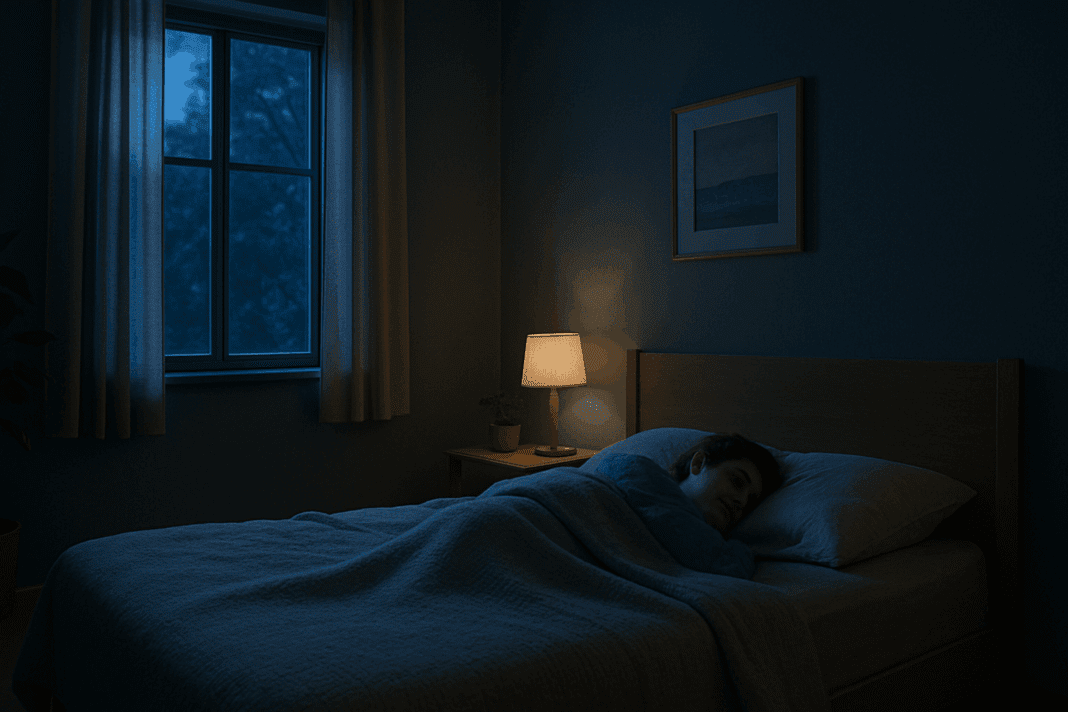The importance of restful sleep in maintaining optimal health cannot be overstated. While many people know the value of getting enough hours of shut-eye, far fewer understand the intricate processes that occur during deep sleep and how profoundly it influences overall well-being. For individuals struggling with low energy, irritability, or chronic tiredness, learning how to take deep sleep consistently can be transformative. Deep sleep, also known as slow-wave sleep, is a critical stage of the sleep cycle where the body undergoes repair, the brain consolidates memories, and stress hormones are regulated. This article explores the mechanisms, habits, and strategies needed to promote deep sleep, highlighting how adopting healthy sleep habits and optimizing sleep hygiene can help reduce everyday fatigue and significantly enhance quality of life.
You may also like: Is Hypertension Hereditary? Understanding the Genetic Link to High Blood Pressure and Cardiovascular Risk
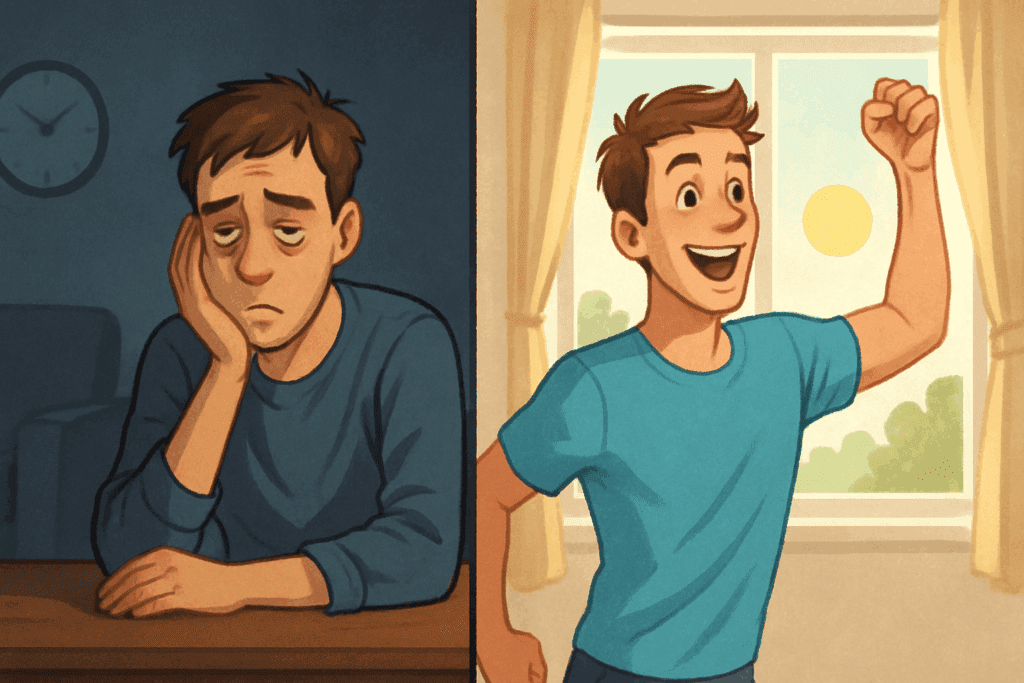
Understanding the Importance of Sleep for Energy and Health
Sleep is often described as the cornerstone of good health, and for good reason. It is during sleep that our bodies perform essential functions such as cellular repair, immune system strengthening, and hormonal balancing. The benefits of good sleep extend well beyond feeling refreshed in the morning. Scientific studies have demonstrated that getting enough sleep consistently helps lower the risk of chronic diseases, supports cognitive performance, and stabilizes mood. In contrast, insufficient or poor-quality sleep can increase the risk of heart disease, obesity, depression, and impaired immune function.
When it comes to combating everyday fatigue, understanding the importance of sleep is vital. The significance of sleep becomes especially apparent when we recognize how each sleep stage contributes to physical and mental restoration. While light sleep and REM (Rapid Eye Movement) stages are essential, it is deep sleep that rejuvenates the body on a fundamental level. Therefore, learning how to increase deep sleep through scientifically backed methods becomes a key strategy in overcoming daily tiredness and maintaining long-term health.
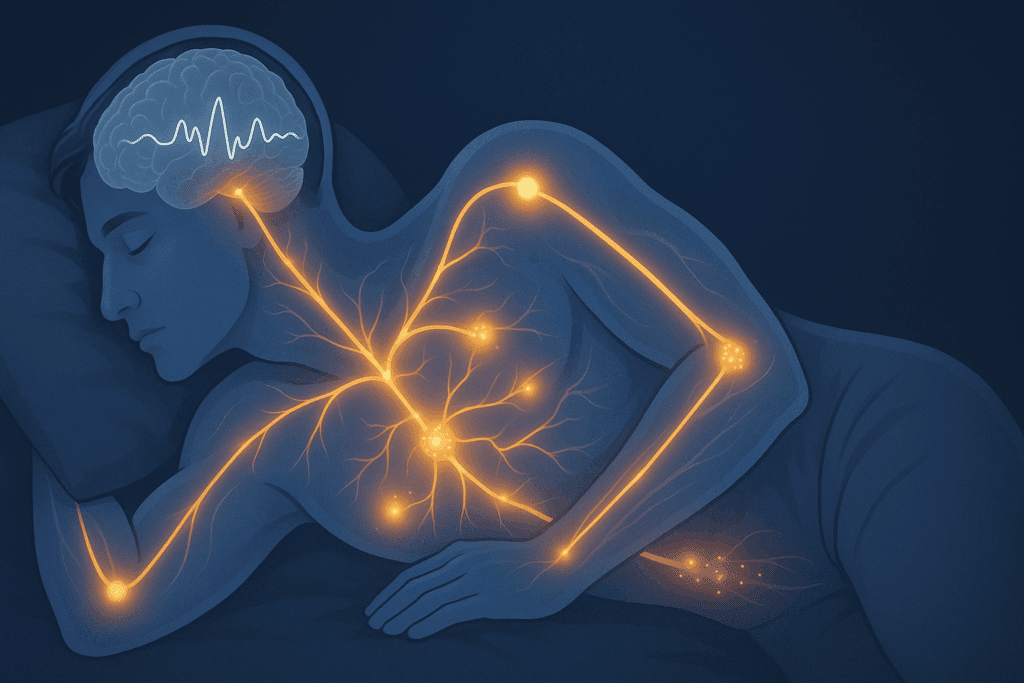
The Science Behind Deep Sleep and Its Role in Recovery
Deep sleep typically occurs in the first half of the night and is characterized by slow brain waves known as delta waves. This stage is the most restorative phase of the sleep cycle, during which blood pressure drops, breathing slows, and muscles relax. The pituitary gland also releases growth hormone, which aids in tissue growth and muscle repair. The benefits of getting enough sleep, particularly deep sleep, extend to every major system in the body.
One notable function of deep sleep is the cleansing of the brain. The glymphatic system, responsible for clearing out metabolic waste, becomes highly active during deep sleep, removing toxins that accumulate during the day. This process may reduce the risk of neurodegenerative diseases such as Alzheimer’s. Additionally, deep sleep strengthens the immune response, helping the body resist infections more effectively. These biological processes illustrate why sleep good sleep habits are essential for maintaining both physical stamina and mental clarity.
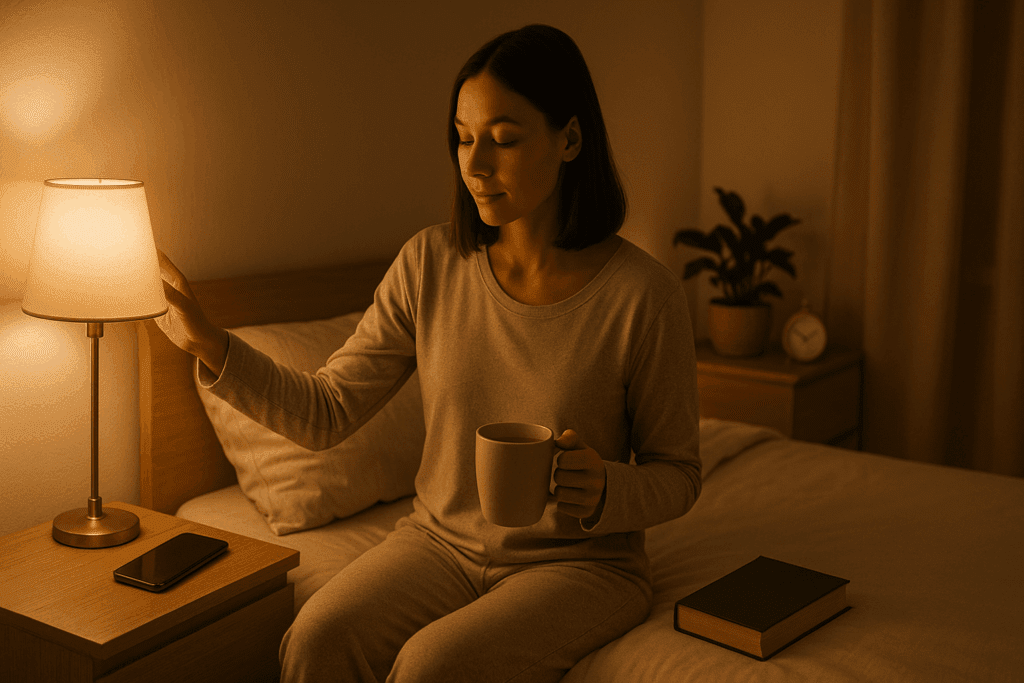
How to Take Deep Sleep: Foundational Habits That Work
To understand how to take deep sleep, one must first assess their current lifestyle and sleep environment. Establishing a regular sleep schedule is fundamental. Going to bed and waking up at the same time every day—yes, even on weekends—helps regulate the body’s internal clock. Consistency strengthens the circadian rhythm, making it easier to fall asleep and stay asleep through the night.
Practicing good sleep hygiene is another cornerstone. This includes creating a sleep-conducive environment: keeping the bedroom dark, quiet, and cool, and removing sources of blue light such as smartphones and televisions. Research has shown that excessive screen exposure before bedtime suppresses melatonin production, a hormone that signals the body it is time to sleep. For individuals seeking how to sleep properly, reducing screen time at least an hour before bed can make a significant difference.
Incorporating a pre-sleep ritual can also support the transition into deep sleep. Activities like reading, taking a warm bath, or practicing deep breathing help signal the brain that it is time to wind down. These bedtime hygiene practices serve to condition the body and mind for rest, making it easier to enter and remain in deeper sleep stages.
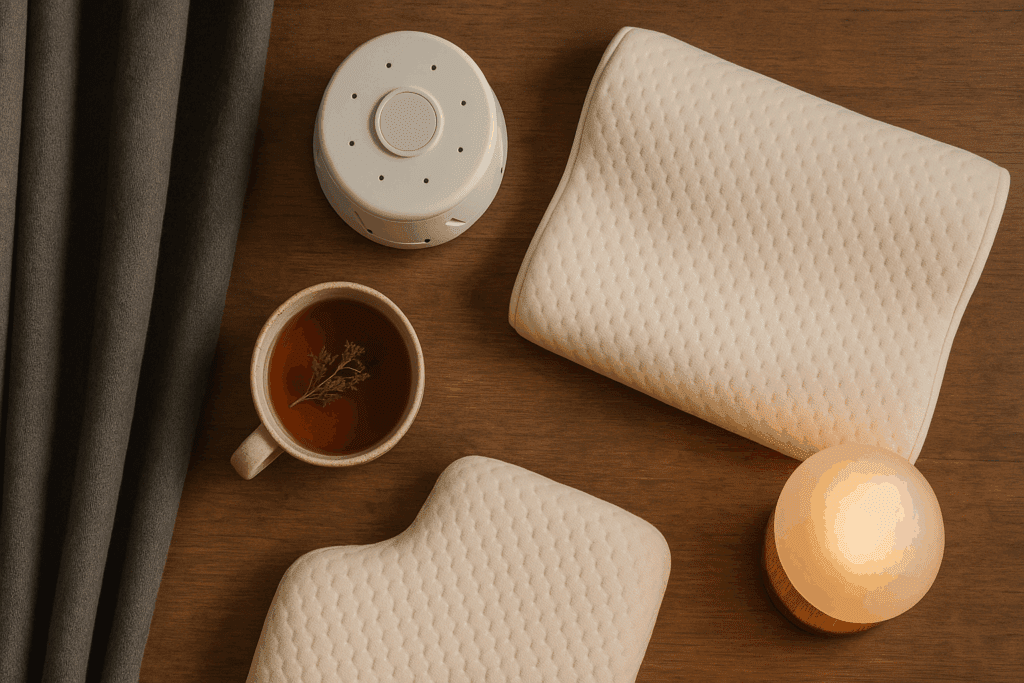
Optimizing Sleep Hygiene to Improve Sleep Quality
Sleep hygiene refers to a set of behavioral and environmental recommendations designed to promote better sleep. For those wondering how to increase deep sleep, refining sleep hygiene practices is a powerful and accessible starting point. Sleep hygiene tips include managing noise with earplugs or white noise machines, investing in a high-quality mattress and pillow, and ensuring that the sleep space is free from clutter and stress-inducing stimuli.
Diet also plays a role. Consuming caffeine or heavy meals late in the evening can disrupt sleep architecture, making it more difficult to achieve deep sleep. Instead, aim to finish eating at least two to three hours before bedtime. Additionally, alcohol, while it may induce drowsiness initially, can fragment sleep and reduce time spent in the deep stages.
Exposure to natural light during the day, especially in the morning, is another effective technique to enhance sleep quality. Light is the most influential external factor regulating the circadian rhythm. Getting outside or sitting near a sunny window helps signal the body to stay alert during the day and become sleepy when it’s dark. Cultivating these healthy sleep habits consistently can transform not only how quickly one falls asleep but also how restorative that sleep becomes.

Deep Sleep Disruptors: Common Pitfalls and How to Avoid Them
Many people unknowingly engage in behaviors that hinder their ability to enter deep sleep. One of the most common disruptors is erratic sleep timing. Staying up late on weekdays and sleeping in on weekends—often called social jet lag—confuses the body’s internal clock. This irregularity makes it harder to fall into deep sleep consistently.
Stress is another major barrier. Elevated cortisol levels, the body’s primary stress hormone, can delay the onset of sleep and prevent the body from transitioning into deeper stages. Chronic stress, in particular, keeps the nervous system in a state of hyperarousal. Learning stress management techniques, such as mindfulness, journaling, or cognitive behavioral therapy for insomnia (CBT-I), can reduce these effects and create a more sleep-friendly mental state.
Overuse of stimulants like caffeine is also a culprit. While a morning cup of coffee can boost alertness, consuming caffeine even six hours before bed can impair sleep quality. Switching to decaffeinated beverages in the afternoon and evening is a practical adjustment. Those seeking to improve sleep quality must be mindful of how daily habits, from diet to screen use, may be sabotaging their efforts to get enough sleep.
The Role of Deep Sleep in Combating Everyday Fatigue
Everyday fatigue is not simply the result of being busy—it’s often a reflection of poor sleep quality, particularly insufficient deep sleep. While light sleep and REM sleep offer benefits, it is deep sleep that restores the physical body and supports long-term energy levels. When the body fails to get enough deep sleep, it doesn’t have time to carry out the necessary repairs, leading to cumulative fatigue.
The benefits of getting enough sleep are directly tied to resilience and performance. Athletes, for example, prioritize sleep to support recovery and enhance physical output. Similarly, professionals who sleep well report better cognitive functioning, faster problem-solving, and more emotional stability. Whether one is a student, parent, or executive, understanding how to take deep sleep can serve as a crucial foundation for fighting fatigue and staying energized throughout the day.

How to Take Deep Sleep: Using Nutrition and Supplements Wisely
Nutritional strategies can significantly impact sleep depth and duration. Nutrients like magnesium, calcium, and B-vitamins play a pivotal role in sleep regulation. Magnesium, in particular, has been shown to relax muscles, calm the nervous system, and help initiate deeper sleep. Including foods like leafy greens, nuts, seeds, and whole grains in the evening can provide these essential nutrients naturally.
Some individuals may benefit from supplements, but it’s important to approach this option with care. Melatonin supplements can be helpful for resetting a disrupted sleep schedule but should be used short-term and under professional guidance. Herbal options such as valerian root and chamomile have demonstrated mild sedative effects and may support bedtime routines.
A well-balanced diet that avoids sugar spikes, supports stable blood sugar levels, and prioritizes nutrient-dense whole foods will generally aid sleep health. When combined with other sleep hygiene tips, dietary support becomes a valuable ally in enhancing sleep quality and making deep sleep more accessible.
Establishing a Consistent Sleep Schedule for Deeper Rest
Of all the factors that influence sleep, perhaps none is more potent than maintaining a regular sleep schedule. The body thrives on rhythm and predictability. A consistent sleep and wake time—even on weekends—strengthens the circadian rhythm and improves the likelihood of entering deep sleep each night. This rhythm trains the body to anticipate sleep and wakefulness, reducing the time it takes to fall asleep and increasing overall sleep efficiency.
This practice also helps in reinforcing the natural ebb and flow of sleep pressure, the biological drive to sleep that builds throughout the day. When sleep times are irregular, the body struggles to regulate sleep pressure effectively, resulting in lighter, more fragmented sleep. By contrast, adhering to a consistent routine, even when traveling or dealing with schedule changes, can help preserve sleep depth and quality.
Parents of young children, shift workers, and students often struggle to maintain this consistency, but small adjustments—like preparing for bed at the same time, using dim lighting in the evening, and avoiding late-night stimuli—can help anchor the body’s internal clock. These adjustments are especially useful for those learning how to take deep sleep in unpredictable environments.
How to Take Deep Sleep by Strengthening Your Evening Routine
An effective evening routine can ease the transition from wakefulness to deep rest. A powerful routine is not only about avoiding screens or turning off bright lights—it is about creating a series of cues that tell the body it is time to prepare for sleep. These cues can include reading, listening to calm music, meditating, or writing in a journal. Such practices help shift the nervous system from the sympathetic state (fight or flight) to the parasympathetic state (rest and digest).
Timing is crucial. Begin winding down 60 to 90 minutes before your intended bedtime to allow the body sufficient time to transition. Activities should be calming and enjoyable, rather than stimulating or emotionally activating. Avoiding emotionally charged discussions, intense exercise, or news consumption during this period can support this transition.
Incorporating scents like lavender or sandalwood through aromatherapy has also been shown to promote relaxation. These sensory signals reinforce sleep rituals and make it easier for the body to enter a state of rest. In combination with healthy sleep habits, a structured and soothing bedtime routine offers a reliable way to improve sleep hygiene and foster deep, uninterrupted sleep.
The Benefits of Good Sleep on Mental and Emotional Well-being
Beyond the physical restoration that deep sleep provides, it also plays an essential role in mental and emotional health. During sleep, especially deep and REM stages, the brain processes emotional experiences, regulates mood, and reinforces learning. Individuals who prioritize sleep good sleep practices report reduced anxiety levels, improved resilience to stress, and greater emotional balance.
This is particularly relevant in our modern world, where stress, social pressures, and digital overstimulation are rampant. Sleep acts as a buffer against these challenges, strengthening coping mechanisms and providing the brain with time to consolidate experiences. Inadequate sleep, on the other hand, compromises emotional regulation and increases irritability, impulsivity, and even symptoms of depression.
For students and working professionals, the cognitive benefits of good sleep are invaluable. Better memory, sharper attention, and more creative thinking are all linked to sufficient sleep, particularly deep sleep. This reinforces the idea that the importance of sleep cannot be overstated—not only for physical vitality but also for emotional equilibrium and psychological clarity.
FAQ: Deep Sleep, Sleep Hygiene, and Everyday Fatigue Recovery
What are some surprising obstacles to achieving good sleep that people often overlook?
While many are aware of the common culprits like caffeine or late-night screen time, subtler disruptions to good sleep are frequently ignored. One such factor is ambient noise that doesn’t fully wake you but still fragments sleep cycles—like a humming appliance or street noise. Another issue is hidden light sources, including digital clocks or standby lights on electronics, which interfere with melatonin secretion and reduce deep sleep phases. Mental overstimulation from late-night multitasking or checking work emails can also activate cognitive alertness, delaying the onset of deep rest. Even mismatched sleeping habits in couples—such as different preferred sleep schedules or mattress firmness—can degrade sleep quality without being immediately obvious.
How can someone adjust their daily routine to naturally support healthy sleep habits?
Aligning daily routines with your natural circadian rhythm is one of the most sustainable ways to reinforce healthy sleep habits. Start by anchoring your day with morning sunlight exposure, which helps synchronize your internal clock and promotes alertness during the day while encouraging sleepiness at night. Consuming balanced meals at regular intervals supports blood sugar stability, which in turn prevents the cortisol spikes that disrupt your ability to fall asleep. Introducing consistent breaks throughout the day, especially screen breaks, can reduce accumulated overstimulation. Regular physical activity, even a brisk walk in the early evening, contributes to both sleep quality and metabolic health. Establishing wind-down rituals such as dimming lights and avoiding intense conversations as bedtime approaches will signal your body it’s time to transition into rest mode.
Why is sleep etiquette in shared living spaces crucial for deep rest?
In shared households or dormitory settings, practicing respectful sleep etiquette can make or break your sleep quality. For instance, quieting noise levels after a certain hour and avoiding abrupt lighting changes in shared rooms preserves the bedtime hygiene of everyone involved. Being mindful of shared space temperature and ventilation also plays a role in maintaining an environment conducive to deep sleep. Even subtle gestures, like using headphones or dim reading lights, promote harmony and minimize disruptions. Coordinating sleep schedules or at least agreeing on quiet times can significantly elevate the sleep quality for everyone. Thoughtful sleep etiquette fosters not only better rest but also healthier interpersonal relationships in communal settings.
What innovative tools or technologies can support those learning how to take deep sleep?
Emerging technologies are offering new ways to train the body and mind for deeper sleep. Wearable sleep trackers, while commonly used, now feature advanced metrics that differentiate between light, REM, and deep sleep stages, providing data-driven insights to guide behavior adjustments. Smart mattresses and pillows equipped with temperature regulation and adaptive pressure sensors create optimized comfort zones that support good sleep hygiene. Soundscapes generated by AI—such as personalized white noise or gentle brainwave entrainment—are gaining traction for their ability to promote deep relaxation. Blue light-blocking glasses with prescription strength or app-controlled lighting that mimics natural dusk are also proving helpful. For those seeking how to take deep sleep more seriously, these innovations provide actionable tools rooted in personalized biofeedback.
What’s the long-term impact of skipping deep sleep even when total sleep time seems adequate?
Many assume that sleeping for seven or eight hours guarantees restoration, but without sufficient deep sleep, much of the body’s core recovery remains incomplete. Chronic deficits in deep sleep have been linked to impaired glucose regulation, increasing the risk for type 2 diabetes. Over time, it can also reduce growth hormone production, weakening tissue repair and muscle development. The immune system becomes sluggish, leaving the body more vulnerable to infections and slower healing responses. Furthermore, insufficient deep sleep negatively affects memory consolidation and emotional processing, leading to cognitive fog and mood instability. This reveals why the importance of sleep goes far beyond duration—it hinges critically on sleep quality and depth.
How can social and emotional factors influence your ability to get enough sleep consistently?
Sleep is as much a social construct as it is a biological process, meaning emotional well-being and relational dynamics can deeply affect sleep quality. Interpersonal conflicts, unresolved stress, or social isolation can heighten anxiety and disrupt melatonin production, delaying the ability to fall asleep. Positive social connections, by contrast, increase oxytocin levels, promoting a state of calm conducive to good sleep. Group norms in families or communities also shape sleep hygiene—for example, households that value screen-free dinners and early wind-down routines promote healthier sleeping habits. Even sleep-related discussions in therapy or support groups have shown potential in improving sleep schedules by fostering accountability and emotional awareness. Thus, cultivating supportive relationships can be as crucial as optimizing sleep environments when learning how to sleep properly.
What strategies can help travelers preserve sleep quality across time zones?
For frequent travelers, preserving sleep quality requires proactive circadian management. Before traveling, gradually shifting your sleep schedule toward your destination’s time zone can reduce jet lag impact. Upon arrival, seek morning sunlight and engage in moderate physical activity to help reset your internal clock. Melatonin supplementation, when timed properly, can assist with initial sleep onset, though it’s most effective when combined with other sleep hygiene tips. Staying hydrated and avoiding alcohol and caffeine during flights helps minimize internal dehydration and stimulant disruption. Bringing familiar bedtime items—like a personal pillowcase or calming essential oil—can help replicate a home sleep environment, making it easier to transition into sleep even in unfamiliar settings.
How to take deep sleep during periods of high stress or emotional overload?
Periods of intense stress challenge even the most consistent sleeping habits, especially the ability to enter deep sleep. Techniques like progressive muscle relaxation, visualization exercises, and slow-paced diaphragmatic breathing can all help transition the body into a parasympathetic state, necessary for deep rest. Journaling briefly before bed to offload worries can reduce mental clutter and support the clarity needed for sleep onset. Cognitive-behavioral strategies, such as reframing nighttime anxiety and restructuring catastrophic thinking, are particularly effective during emotionally turbulent times. Apps that combine mindfulness meditation with biofeedback offer guided routines specifically tailored for high-stress recovery. These approaches are invaluable when exploring how to take deep sleep despite overwhelming emotional conditions.
How can improving sleep hygiene enhance the benefits of good sleep long-term?
Sleep hygiene forms the behavioral backbone of long-term sleep health, and refining it amplifies the benefits of good sleep over time. For example, regulating bedroom temperature consistently around 65°F (18°C) optimizes thermoregulation during sleep cycles, helping you stay longer in deep stages. Scent-conditioning your room with calming essential oils trains your brain to associate certain aromas with bedtime relaxation, reinforcing healthy sleep habits. Replacing old pillows every 12–18 months supports neck alignment and comfort, preventing micro-awakenings that degrade sleep quality. Limiting bedroom use to only sleep and intimacy strengthens the brain’s psychological association between the space and restorative rest. These practical upgrades ensure that improvements in sleep hygiene aren’t just short-term wins, but long-term investments in holistic wellness.
What are the most overlooked lifestyle upgrades for those asking how to take deep sleep more seriously?
Beyond the common tips, several lifestyle enhancements are often neglected but offer significant results for those seriously pursuing how to take deep sleep. One involves managing lighting throughout the day—not just at night—by ensuring bright exposure in the morning and dim lighting post-sunset to reinforce circadian cues. Another involves aligning eating patterns with your body clock, such as front-loading calorie intake earlier in the day and avoiding heavy dinners that impair digestion and delay sleep. Hydration timing also plays a subtle but impactful role; consuming most fluids earlier in the day reduces nighttime awakenings. Even switching to analog alarm clocks instead of phone alarms helps reduce nighttime screen temptation and supports better bedtime hygiene. These nuanced adjustments often yield disproportionate returns when it comes to improving sleep quality and fighting everyday fatigue.
Final Thoughts: Mastering Sleep Hygiene and Embracing Deep Rest
Learning how to take deep sleep and fight everyday fatigue is not just a matter of technique but a lifestyle commitment. Sleep is not a passive process—it is an active state of healing, learning, and restoration. By embracing healthy sleep habits, practicing good sleep hygiene, and maintaining a consistent sleep schedule, individuals can access the profound benefits of getting enough sleep every night.
Fatigue, stress, and cognitive fog are not inevitable parts of modern life. With the right knowledge and consistent application, it is possible to enhance sleep quality, build better bedtime hygiene, and transform the way you experience daily life. From dietary choices and pre-sleep rituals to environmental adjustments and emotional regulation, each element plays a role in supporting deep, revitalizing rest.
The significance of sleep goes beyond temporary relief—it is foundational to health, resilience, and well-being. As we learn to respect and prioritize this vital biological process, we empower ourselves to lead more vibrant, focused, and energized lives. For those seeking a true antidote to chronic tiredness, understanding how to sleep properly and consistently reaching deep sleep may be the most effective and sustainable strategy available today.
Further Reading:
Better sleep: Why it’s important for your health and tips to sleep soundly


